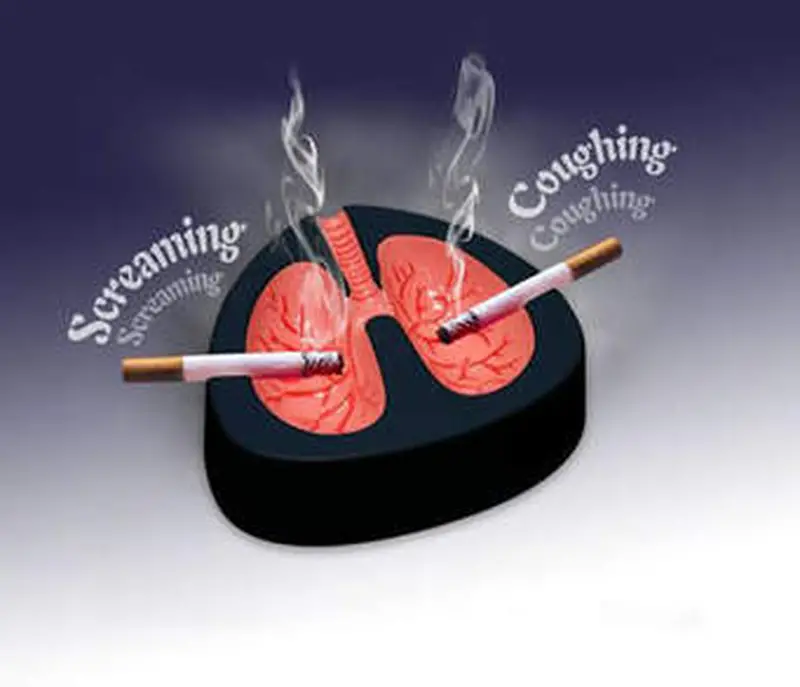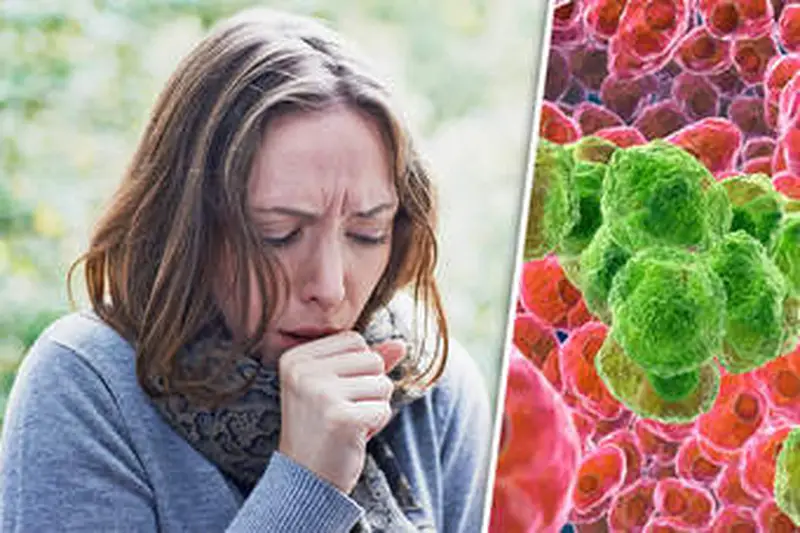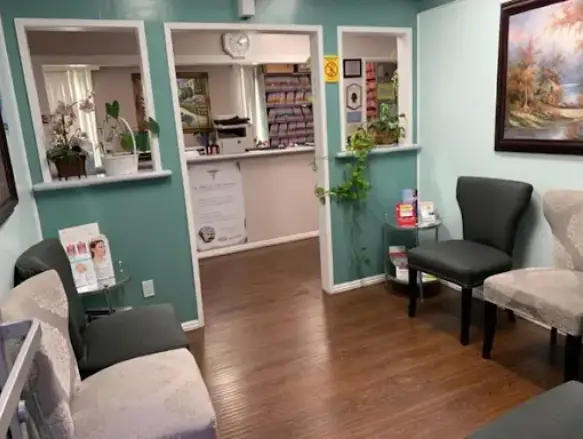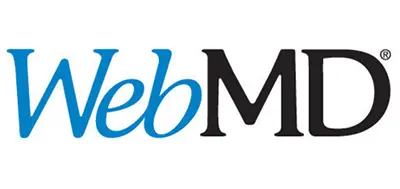Cough
Get In Touch
Call Now
Monday to Friday
9:00 AM To 6:00 PM
Saturday and Sunday
Closed

- Coughing is a common reflex action that clears your throat of mucus or foreign irritants.
- While everyone coughs to clear their throat from time to time, a number of conditions can cause more frequent coughing.
- A cough that lasts for less than three weeks is an acute cough.
- A cough is your body’s way of responding when something irritates your throat or airways. An irritant stimulates nerves that send a message to your brain. The brain then tells muscles in your chest and abdomen to push air out of your lungs to force out the irritant.
- An occasional cough is normal and healthy.
Acute Cough
Infectious causes of acute cough include:
- Viral upper respiratory infections common cold.
- Sinus infections.
- Acute bronchitis (inflammation of the lining of the bronchial tubes of the lung).
- Pneumonia.
- Whooping cough.
- Croup in children.
Noninfectious causes of cough include:
- Flare-ups of chronic conditions such as chronic bronchitis.
- Emphysema, asthma.
- Environmental allergies.
Chronic Cough
- The easiest way to simplify the causes of chronic cough is to divide them into their locations with respect to the lungs.
- The categories are:
- Environmental irritants
- Conditions within the lungs
- Conditions along the passages that transmit air from the lungs to the environment
- Conditions within the chest cavity but outside of the lungs
- Digestive causes.
Signs and Symptoms of an Acute Cough:
- signs and symptoms that point to an infection include:
| Fever | Nausea | Runny nose |
| Chills | Vomiting | Night sweats |
| Body aches | Headache | Postnasal |
| Sore throat | Sinus pressure |
- Sputum, or phlegm, sometimes indicates an infection is present, but it is also seen in noninfectious causes. Yellow-green mucus also may indicate and infection.
Signs And Symptoms Of A Chronic (Persistent) Cough:
Signs and symptoms of a chronic or persistent cough point to noninfectious causes
- Coughs that occur when a person is exposed to certain chemicals or irritants in the environment.
- Coughs with wheezing.
- Coughs that routinely worsen when a person goes to certain locations or do certain activities.
Causes
- While an occasional cough is normal, a cough that persists may be a sign of a medical problem.
- A cough is considered “acute” if it lasts less than three weeks.
- It is considered “chronic” if it lasts longer than eight weeks (four weeks in children).
Common causes — Acute Cough
- Common cold
- Influenza (flu)
- Inhaling an irritant (such as smoke, dust, chemicals or a foreign body)
- Pneumonia
- Whooping cough
Common causes — Chronic Cough
- Allergies
- Asthma (most common in children)
- Bronchitis
- Gastroesophageal reflux disease
- Postnasal drip
Others Causes of Cough:
- Acute sinusitis (sinus infection)
- Bronchiectasis (a chronic lung condition in which abnormal widening of bronchial tubes inhibits mucus clearing)
- Bronchiolitis (especially in young children)
- Choking: First aid (especially in children)
- Chronic sinusitis
- COPD exacerbation
- Croup (especially in young children)
- Cystic fibrosis
- Emphysema
- Heart failure
- Laryngitis
- Lung cancer
- Medications called angiotensin-converting enzyme (ACE) inhibitors
- Neuromuscular diseases that weaken the coordination of upper airway and swallowing muscles
- Pulmonary embolism (blood clot in an artery in the lung)
- Respiratory syncytial virus (RSV) — especially in young children
- Sarcoidosis (collections of inflammatory cells in the body)
- Tuberculosis
Treatments
- Treatment isn’t always necessary for short-term coughs because it’s likely to be a viral infection that will get better on its own within a few weeks.
- You can look after yourself at home by resting, drinking plenty of fluids, and taking painkillers such as paracetamol or ibuprofen.
- Cough medicines and remedies
- Medicines that claim to suppress your cough or stop you bringing up phlegm are not usually recommended.
- This is because there’s little evidence to suggest there any better than simple home remedies, and they’re not suitable for everyone.
- The Medicines and Healthcare products Regulatory Agency (MHRA) recommends that over-the-counter cough and cold medicines shouldn’t be given to children under the age of six.
- Children aged 6 to 12 should only use them on the advice of a doctor or pharmacist.
- A homemade remedy containing honey and lemon is likely to be just as useful and safer to take. Honey shouldn’t be given to babies under the age of one because of the risk of infant botulism.
- Treating the underlying cause
- this may help. For example: If your cough has a specific cause, treating
- asthma can be treated with inhaled steroids to reduce inflammation in your airways
- allergies can be treated by avoiding things you’re allergic to and taking antihistamines to dampen down your allergic reactions
- bacterial infections can be treated with antibiotics
- GERD can be treated with antacids to neutralise your stomach acid and medication to reduce the amount of acid your stomach produces
- COPD can be treated with bronchodilators to widen your airways
- If you smoke, quitting is also likely to help improve your cough. Read more about stopping smoking.
Top 10 Home Remedies for Cough
- A cough is caused by an irritant which tickles the larynx, and the body reacts by reflexively contracting muscles to expel it out.
- Even though cough plays a huge role in clearing irritants, it can be annoying when persistent.
- There are some do-it-yourself (DIY) remedies that can help treat cough.
10 of these remedies are:
Long hot shower
- Coughing is as a result of cold.
- The body responds to cold and tries to eradicate accumulated mucus through cough.
- Taking a regular hot shower will help to soothe the airways and reduce inflammation.
- It will also help to reduce the thickness of the produced mucus, thereby reducing the severity of the cough.
- A hot bath will steam up the bathroom, and you can as well stay for some while in the bathroom for your body to absorb heat.
- There is nothing like a hot bath you know.
- Asides curing your cough, a hot bath will help calm your nerves, re-energize you and relax pressurized muscles. That is a plus.
Honey tea
- Honey is known for various benefits it gives to the body.
- One of those benefits is its treatment of cough.
- It is naturally antibacterial, and it contains sugar concentration and hydrogen peroxide which are antibacterial properties.
- To treat cough with honey, mix two teaspoons of honey with hot water and lemon or any herbal tea.
- You can take this mixture as often as you need or want it.
- A homemade remedy of honey is safer than giving over-the-counter common cough and cold medications to children under six years of age.
- Now, although honey is an effective night treatment for children battling with cough, it should not be given to children under one year of age.
Steaming
- Asides having a hot shower to treat cough, making a steam bowl is also an effective way to cure cough.
- How do you go about this? Just fill a big bowl with hot water, throw in herbs like peppermint or essential oils like eucalyptus and stir.
- Then lean over the bowl and drape a thick cloth over your head to trap the steam. Maintain this position if you can and try as much as possible to inhale the vapor.
- The steam from the water will help thin the accumulated mucus and also soothe your airways.
Warm salt-water gargle
- It is an effective remedy for cough and sore throat, and it helps to draw excess fluid from inflamed tissues in the throat, making them hurt less.
- The process is simple. Just make a warm saltwater solution and gargle on it by making it sit for a while on your throat, then spit it out.
- Gargling will loosen thick mucus in the airways.
- This method is best for adults only since children might end up swallowing the solution and this can pose a considerable danger when taken in excess.
- You can repeat this process as much as it is convenient for you.
Ginger
- Ginger is not made only for the kitchen or just to spice up foods.
- It has its health benefits also.
- Ginger has anti-inflammatory compounds and very effective in soothing the inflamed airways, which can reduce coughing.
- Asides that, it is also an effective immunizing agent against germs and very good in calming nerves.
- As cough treatment, ginger can be stewed in water as tea.
- You add few slices of fresh ginger in hot water, allow it steep for a few minutes and drink.
- This home remedy shouldn’t be taken all the time because excess consumption can lead to stomach upset or heart burn in some cases.
Bromelain
- This is a proteinous enzyme derived from the pineapple plant.
- Bromelain has lots of health benefits it gives to the body; from relieving sinus problems to reducing inflammation.
- The main cause of the production of mucus which leads to cough is the inflammation of the airways in the lungs.
- Bromelain can be extracted from the peel, stem, leaves or waste of pineapple plant after processing the fruit. It is not difficult to get as you might think, it is available in the markets.
Monitor your diet
- When you notice you are beginning to have a cough, try to monitor your diet.
- You should not take in food that will irritate your lungs or cause your throat to be itchy.
- Avoid fruits that are naturally dry like nuts.
- Avoid fried and fatty foods because they contain unhealthy fats that put pressure on the lungs. Fatty foods also cause excess mucus production and further aggravate the cough.
- Limit your intake of dairy products to avoid the production of excess mucus.
- Avoid caffeine-loaded foods and drinks which tends to dehydrate the body.
- When the body is dehydrated, thick mucus is produced, and this worsens cough.
- Avoid alcohol, fermented foods, dry fruits, etc. and reduce intake of sugar as it can cause serious inflammation.
Water
- A reason cough develops is because the body is exposed to cold and there is inflammation, thereby leading to mucus production. The body then tries to combat this inflammation and clear the mucus by responding with cough.
- Now, the thinner the mucus, the less severe the cough. You can thin mucus by taking in enough water and getting hydrated. In this situation, it is best to make the water lukewarm.
- Just keep yourself hydrated, and it will do a whole lot of good on your throat. However, do not overdo this. Don’t overhydrate yourself as this makes the salt and other electrolytes in the body too diluted, causing another complication.
Peppermint
- Peppermint leaves are popularly known for their health benefits.
- This herb contains menthol which helps to calm the throat and break down mucus, thereby improving cough.
- There are different processes of using peppermint to cure cough. You can simmer it and drink as tea. You can also add 3 or 4 drops of it to a steam bowl then lean over it and inhale the vapor.
Thyme
- Thyme is a common remedy for cough, bronchitis, and sore throat.
- It contains antioxidants which inhibit oxidation.
- You can make a tune tea by adding two teaspoons of dried thyme to a glass of hot water. Allow it steep for some minutes, strain the water and drink. You can repeat this remedy as many times as you want
- Coughing up blood can be caused by a variety of lung conditions.
- The blood may be bright red or pink and frothy, or it may be mixed with mucus.
- Seeing blood when you cough can be alarming, whether it’s a large or small amount.
- Coughing up blood is nearly always a symptom of a disease.
- The seriousness of the condition depends on the amount of blood and the length of time the
- Blood is being coughed up, but this symptom should never be ignored.
- The blood you cough up may come from your nose, throat, upper airways, or lungs.
Get immediate help if:


Causes
- The major cause of coughing up blood is chronic bronchitis or bronchiectasis.
- Other possible causes of coughing up blood include:
- COPD exacerbation — worsening of symptoms
- Cystic fibrosis
- Drug use, such as crack cocaine
- Foreign body
- Granulomatosis with polyangiitis (Wegener’s granulomatosis)
- Lung abscess
- Lung cancer
- Mitral valve stenosis
- Parasitic infection
- Pneumonia
- Pulmonary embolism (blood clot in an artery in the lung)
- Trauma to the chest
- Tuberculosis
Management of Hemoptysis
- Your doctor will examine your chest and lungs and will often begin with a chest X-ray.
- They may also perform the following tests:
- Bronchoscopy (to view inside lungs with a lighted camera). This is performed by lung specialist.
- Chest CT scan (to provide a cross-sectioned view of the chest)
- Complete Blood Count (to reveal certain diseases or conditions)
- Lung Biopsy (to remove a piece of tissue from the lung). This is performed by lung specialist.
- Lung VQ scan (to evaluate blood flow and airflow to the lungs)
- Pulmonary Angiography (to assess blood flow in the lungs) in case suspecting lung blood clot.
- Sputum Culture (to find infection-causing organisms)
- Pulse Oximetry (to check blood oxygen levels)

What Patients Say
Our Testimonials
Why patients trust Dr. Farah with their health

Came in with a headache and started to feel sick. Had a big trip for New Years, therefore I had to solve my problems quickly. Dr. Farah helped me right away and treated all my problems, he saved my weekend. Will come here again soon.
Melanie Warner

I was in a lot of pain and I walked in and the receptionist was so lovely. I was into see the doctor within five minutes and he listened to me and was wonderful. I’ve been to a few urgent cares and this one by far is the best !
Tiffany Lee-Frank

I absolutely love Dr Farah and his whole staff on the medical and the spa side. I’m not just saying this, Dr Farah has been my doctor over 10 years and I’ve been using his Rejuvenate spa for about 4 years now. I would give them 10 stars if I could!!!
Lori Brooks

Ashley and Anna are friendly and made me feel welcome and at ease. Dr. Farah was very understanding and answered all my stupid questions. They were all very professional and patient with me.
juli ross
Providing Urgent Care for non-life-threatening health complications

Urgent care services
Monday to Friday
9:00 AM To 6:00 PM
Saturday and Sunday
Closed
17130 Ventura Boulevard,
Encino California 91316






